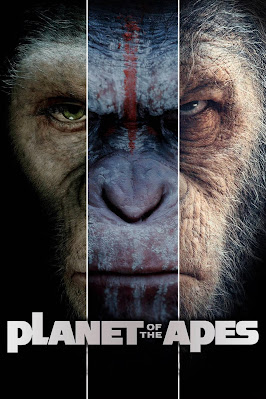If there is one image that summarizes (and has come to define) this franchise, it would have to be the aforementioned moment of Cruise dangling from the ceiling of a CIA vault by wire, inches from the ground, with stakes literally hanging in the balance. Director Brian de Palma's 1996 film adaptation of the 1960s TV series definitely captures the mystery and caper escapades of the era, but in the modern world. On the other hand, it's also a convoluted and stylized plot, and it even polarized original members of the show's cast. Nevertheless, it did have some impressive action and swagger to spare, including a climactic helicopter/train sequence. And that closing-credits rendition of the show's theme (originated by composer Lalo Schifrin) is a kicker!
Mission: Impossible 2 (2000)
This second film, helmed by action veteran John Woo, is an overboard in over-the-top action, fights and explosions. Oh, and motorcycles. But it does have a few impressive set pieces. The opening shot of Cruise climbing (and hanging one-handed off of) the cliffs of Moab in Utah redefines death-defying. He insisted on not using a safety net, with only wires (erased in post-production) to secure him. Cruise also let a knife come inches from his own eye socket. Plus, then-infamous heavy metal-rap band Limp Bizkit did contribute their own version of the show's theme impressively, titled "Take A Look Around." (That electric guitar riff, man!)
Mission: Impossible III (2006)
J.J. Abrams took over directing duties for this third outing (and his own directorial debut), which was arguably the first time the franchise was heading in a better, more team-oriented, direction. It was also a very menacing film with a truly menacing and torturing villain (the late brilliant Philip Seymour Hoffman). Standout sequences include Cruise jumping from a corporate building in Shanghai, which was good, but the ultimate shot in this film is Cruise running from an adversary jet's rocket, only to be impacted by its blast against a commercial car.
Now this is how you make an action-packed blockbuster and package it as popcorn entertainment. Animation veteran Brad Bird made an impressive debut with this best-in-the-series feature as a terrorist plot points the blame to the remaining IMF members (including Cruise, Simon Pegg, Jeremy Renner, and Paula Patton), leading them to various locations as Russia and Dubai, India. The now-famous scene where Cruise literally climbs the Burj Kaliji in Dubai (one of many scenes filmed with IMAX cameras) is a showcase in high-stakes thrills and vertigo.
Mission: Impossible--Rogue Nation (2015)
As if the Burj Kaliji wasn't enough, Cruise tops himself by dangling outside of an A700 plane in the opening sequence of this fifth film, written and helmed by Christopher McQuarrie. This marked the first time that the villanous Syndicate organization (made famous in the original TV show) made its appearance in the films, and the intensity level is amped up, both in the action (i.e., Cruise holding his breath under water for several minutes and driving a motorcycle without a helmet during a high-speed chase) and character emotion departments.
Mission: Impossible--Fallout (2018)
It's easy to take note of the practical and daring action sequences (hang on for the 360-degree helicopter drop and the aero plane jump) in this sixth M:I film, again helmed by McQuarrie. What makes this film stand out more, perhaps, are its personal stakes and character motives, in terms of what is considered "for the greater good" after a former adversary escapes custody. The result is an operatic mystery-suspense action-thriller with edge-of-your-seat unpredictability, an electrifying and haunting score, incredible sound design, and a story that questions those giving orders, the belief that some missions are not a choice, and choices in walking away or not. The emotional weight and complexities do make the film convoluted at times. Still, it stands as big, epic, and grand, in the best sense of those words.











